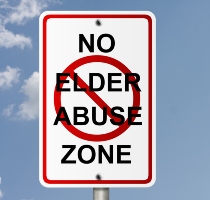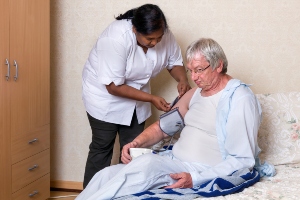Contact Us
Two Pershing Square 2300 Main Street, Suite 170 Kansas City MO 64108Two Pershing Square
2300 Main Street, Suite 170
Kansas City, MO 64108
Directions
Telephone: (816) 221-6600
Toll Free: 1 (877) 284-6600
Fax: (816) 221-6612

Making the decision to trust the care of an aging loved one to another is an extremely difficult decision. To add to your stress, you hear news stories about the poor treatment of our elderly in nursing homes, ranging from financial exploitation, physical, emotional, and sexual abuse to basic neglect. How do you avoid potential nursing home abuse, ensuring your elderly loved one is safe from all forms of elder abuse?
 Falls. Know how the staff handles falls, the immediate care, and follow-up care. How do they communicate with you about the fall? Are there call buttons near the bed and bathroom? Are spills and accidents cleaned up quickly? Are hallways well lit and clutter-free?
Falls. Know how the staff handles falls, the immediate care, and follow-up care. How do they communicate with you about the fall? Are there call buttons near the bed and bathroom? Are spills and accidents cleaned up quickly? Are hallways well lit and clutter-free? Staff Training. What types of training does the staff receive? Who does the training and how often? Is the staff licensed and certified? Does the facility have an abuse prevention training program?
Staff Training. What types of training does the staff receive? Who does the training and how often? Is the staff licensed and certified? Does the facility have an abuse prevention training program?If your elderly loved one has been mistreated or suffered injuries because of nursing home abuse or neglect, put a stop to it immediately. Talk with the facility’s administration or file a grievance.
Should you need a personal injury lawyer in the Kansas City area with expertise in nursing home abuse lawsuits, contact the lawyers at Nash & Franciskato for a free, no-obligation review of your case.
If you would like to receive news and blog updates on a regular basis, sign up to receive our email newsletter. Your email address will only be used to send you our newsletter and respond to inquiries.
Past results afford no guarantee of future results and each case is different and is judged on its own merits. The choice of a lawyer is an important decision and should not be based solely upon advertisements.
Editor’s Note: This post was originally published November 2, 2015. It was reviewed on June 6, 2023, and updated for content and accuracy.